AU Faculty Take Their Research and Creativity around the World
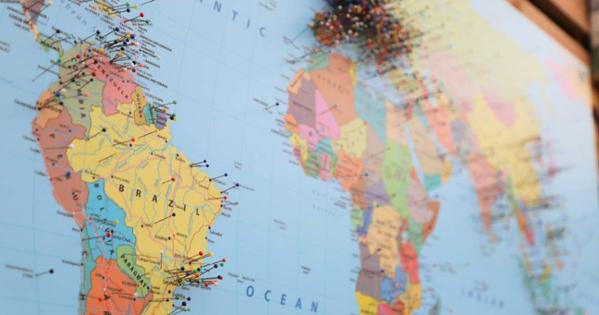
From the bustling city streets in Bangkok to the quiet mountains of the Berkshires, American University's College of Arts and Sciences faculty—and students—spent the summer doing what they do best: exploring, creating, researching, and sharing their scholarship with new audiences. They brought AU’s spirit of curiosity to every corner of the globe, discovering new ideas and perspectives to share with their students back home.
Whether presenting award-winning research in Morocco, experimenting with ancient art techniques in New Mexico, or swimming in the lakes of Slovenia, this is just a glimpse into where the CAS community’s work and travels took them this year.
Hitting All the Right Notes in Colombia
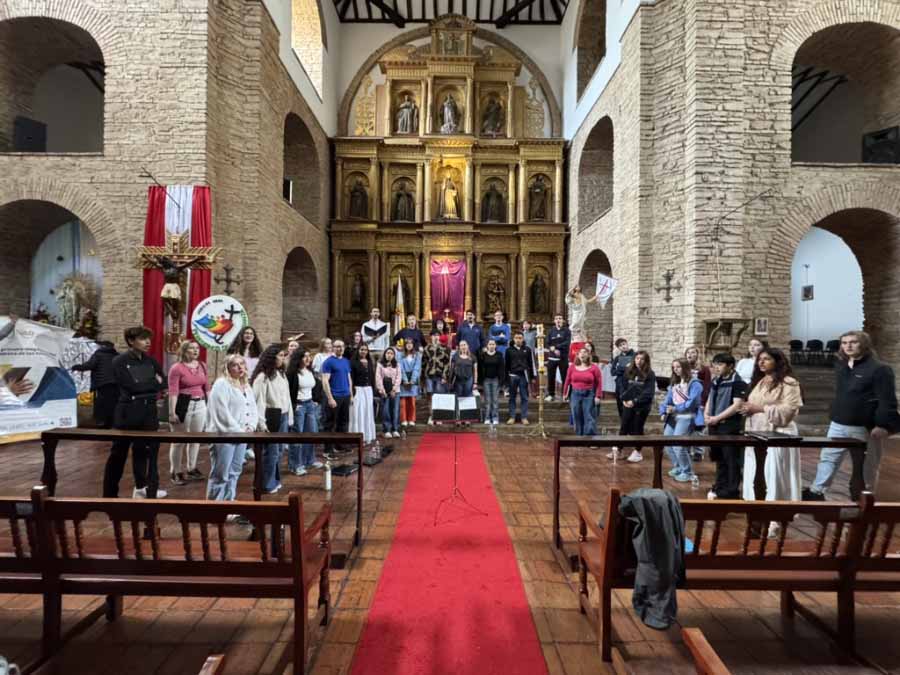 AU Chamber Singers rehearsing in Santuario San Ignacio in Tunja, Colombia
AU Chamber Singers rehearsing in Santuario San Ignacio in Tunja, Colombia
The AU Chamber Singers wrapped up a 12-day tour of Colombia, starting with a residency and joint performances at Universidad Autónoma de Bucaramanga. Then on the road, they performed five concerts and collaborated with local ensembles. “Every stop brought rich cultural exchange, deeper understanding, and extraordinary music-making,” said Director Dan Abraham.
Walrus Alliances in the Arctic Capital
 St. Lawrence Island, Walrus Capital of the World, photo by Devin Johnson, USFWS (Permit #MA14537C)
St. Lawrence Island, Walrus Capital of the World, photo by Devin Johnson, USFWS (Permit #MA14537C)
Environmental Science Professor Chelsea Koch recently traveled to St. Lawrence Island, Alaska—a remote Arctic island in the Bering Strait known as the “Walrus Capital of the World.” She hosted two workshops with subsistence hunters, focusing on co-producing walrus research and exploring how rapidly changing Arctic conditions are reducing hunting accessibility. This work was in collaboration the US Fish and Wildlife Service and the long-term Walrus Harvest Monitoring Program.
Striking a Chord in Kenya
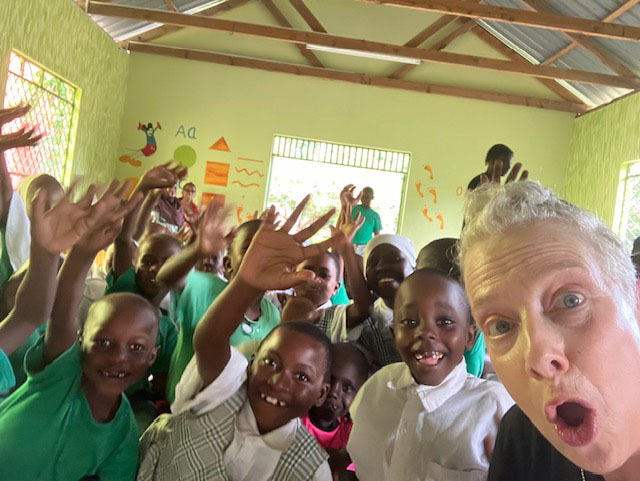
Nancy Jo Snider spent much of July in Kenya, bringing music to life with an organization called S’Cool Sounds, a nonprofit dedicated to connecting children and communities through the power of music. She visited schools in Diani, the Shimba Hills, and Nairobi to lead interactive workshops showcasing the S’Cool Sounds model of music learning. “More S’Cool Sounds (in Kenya) means more inspiration, more education, more connection, more transformation, and more empowerment through music,” Snider says.
From the Hawaiian Islands to the New York Times Opinion Pages
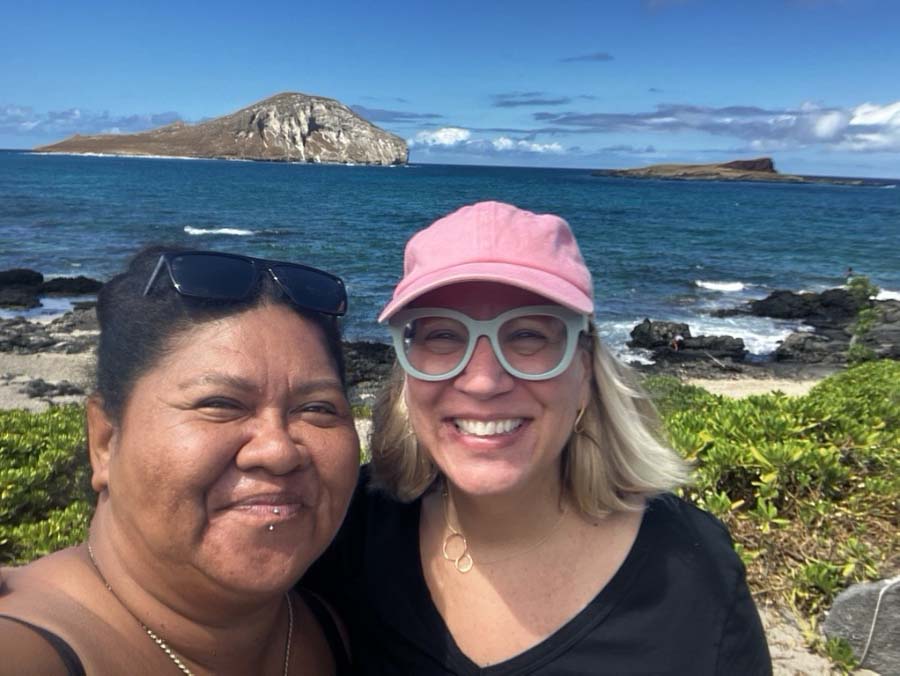 Rachel Louise Snyder (right) and Veronica Hanawahine
Rachel Louise Snyder (right) and Veronica Hanawahine
While in Hawaii researching an innovative all-women’s court for a New York Times opinion cover story, Professor of Literature Rachel Louise Snyder met Veronica Hanawahine, the court’s first participant. The court is a gender-responsive program designed to address the unique challenges that women face in our justice system, focusing on rehabilitation and support rather than punishment.
Mapping Change in Argentina’s Wetlands
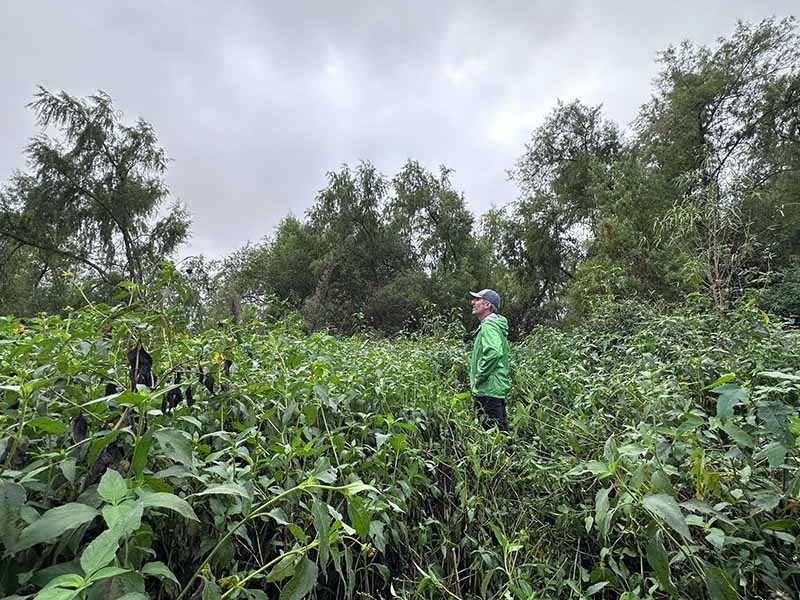 Michael Alonzo in the Paraná River wetlands
Michael Alonzo in the Paraná River wetlands
Environmental Science Professor Michael Alonzo joined researchers and students from Universidad Nacional de San Martín (Buenos Aires) to study the wetlands of the Paraná River. Using high-resolution satellite imagery, the team traced the land cover history of this little-studied landscape and investigated what drives vegetation change—from floods and fires to temperature shifts, grazing, and more.
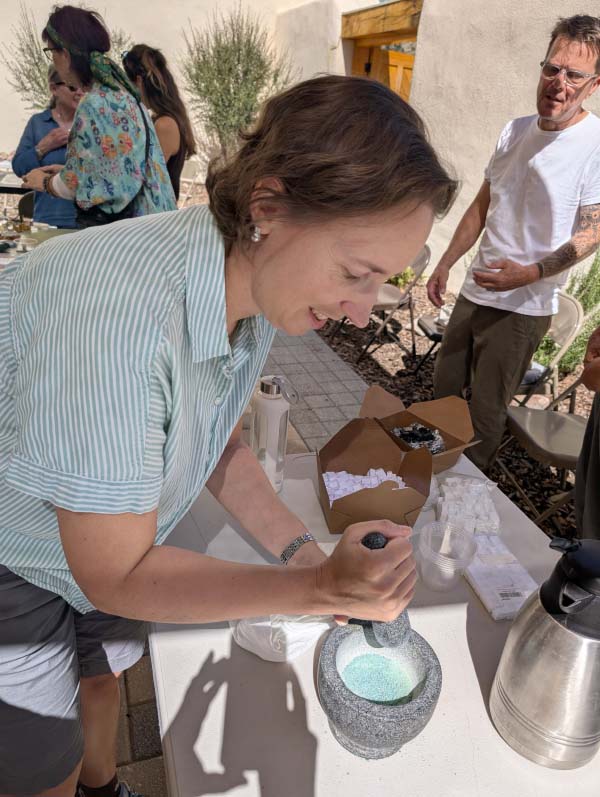
Ancient Pigment-making Techniques in the Desert
In New Mexico, Hurst Senior Professorial Lecturer in Art History Joanne Allen got her hands dirty—literally—learning to make watercolor paint from raw earth pigments. The experience will help her show her students just how much work went into creating art materials before the invention of the paint tube in the nineteenth century.
Right: Joanne Allen at work in New Mexico.
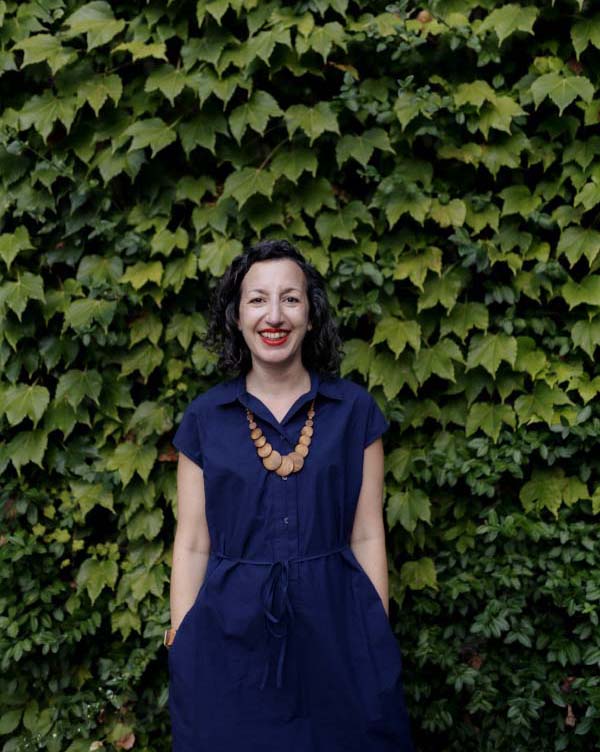
1960s Art through a Post-War Lens
Art History Professor Nika Elder was a Fellow at the Clark Art Institute in the Berkshires, doing research for her third book project on the art of the 1960s and what it means to refer to this work as post-war. “It has been a magical experience!” she says.
Left: Nika Elder
Advancing Harmonic Analysis in Mumbai
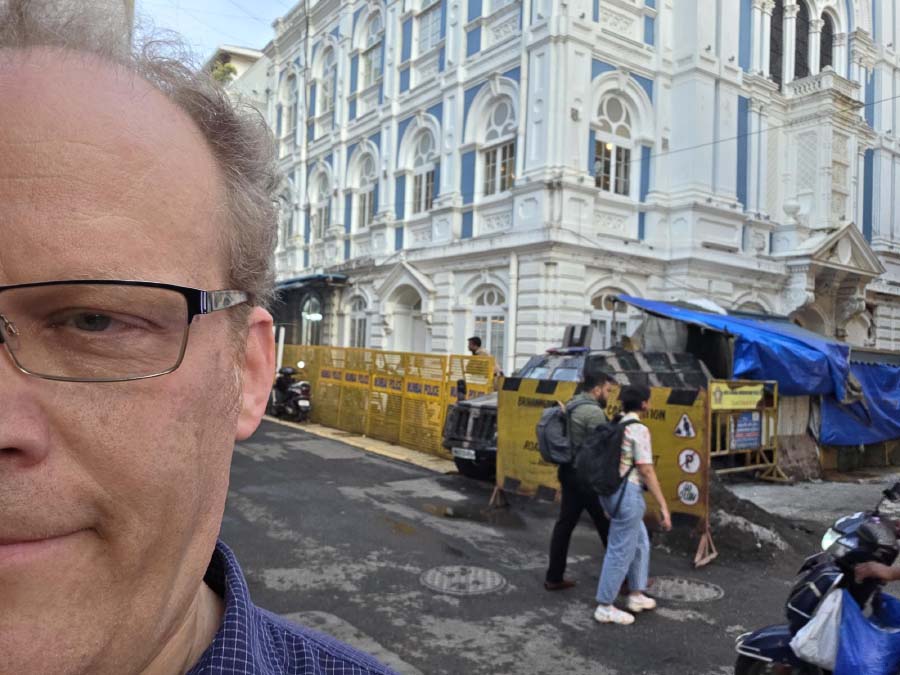 Jeffrey Adler in Mumbai
Jeffrey Adler in Mumbai
Professor of Mathematics and Statistics Jeffrey Adler worked on a multi-year project in relative harmonic analysis at the Tata Institute of Fundamental Research in Mumbai, India. Building on the earlier work of fellow AU professor Jeffrey Hakim, this project explores connections between number theory, geometry, and analysis.
History Comes Alive in Istanbul: Exploring Byzantine Orthodoxy
 Hagia Sophia in Istanbul
Hagia Sophia in Istanbul
History Professor Anton Fedyashin led American University and Georgetown students—both undergraduate and graduate—on a Carmel Institute summer study trip to the vibrant crossroads of cultures: Istanbul, Turkey.
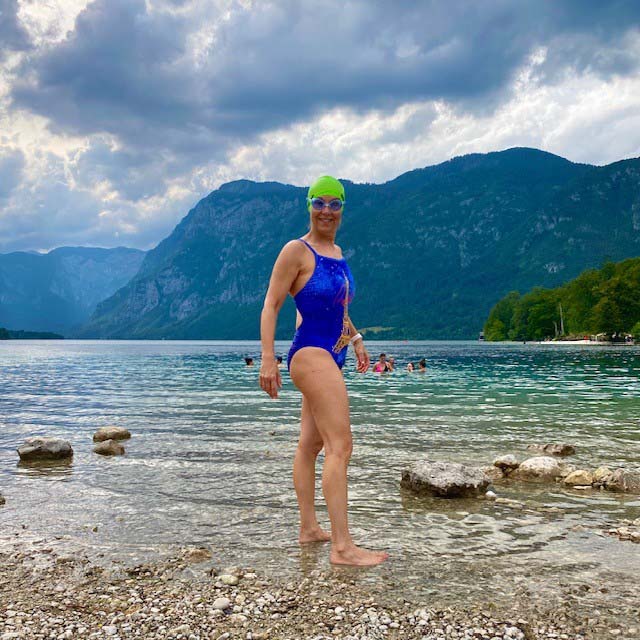
Making Waves Across Nations
Health Studies Professorial Lecturer Jody Gan took her commitment to active living across international borders this summer, swimming daily in the waters of Italy and Slovenia. She swam 10 out of the 10 days of the trip—in different parts of the Adriatic Sea, Lake Bled, and Lake Bohinj.
Right: Jody Gan at Lake Bohinj in the Julian Alps of Slovenia
HIV and Mental Health Research Presented in Casablanca
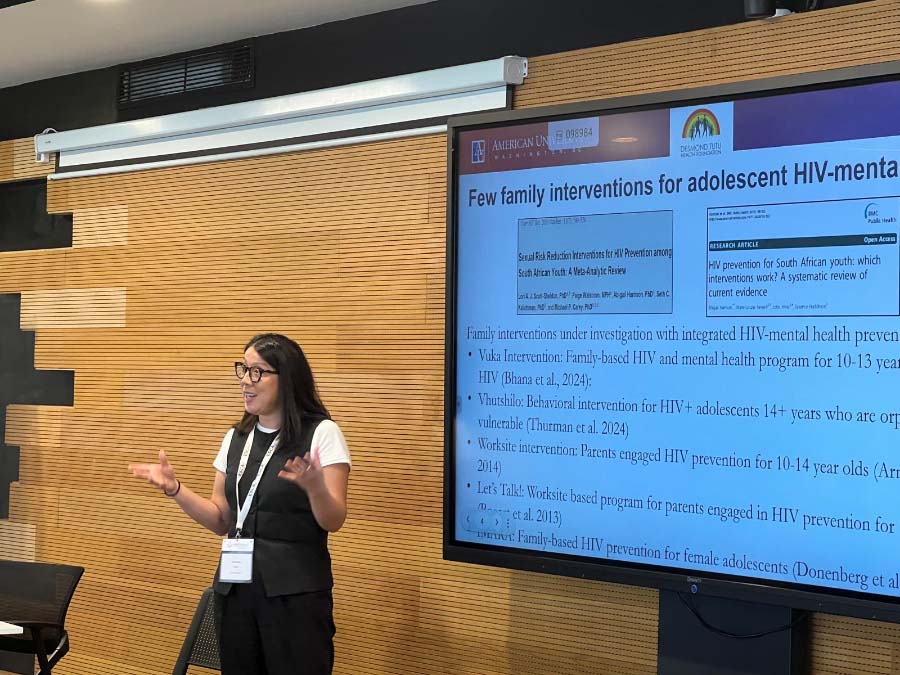 Kuo presents her work in Casablanca
Kuo presents her work in Casablanca
Health Studies Professor Caroline Kuo traveled to Casablanca, Morocco to the AIDS Impact 2025 Conference. She presented her research on family resilience in the context of the overlapping HIV and poor mental health epidemics in South Africa. It received the 2025 Best Conference Paper Award.
Sparking Innovation in Renewable Materials
 Douglas Fox in Girona
Douglas Fox in Girona
Chemistry Professor Douglas Fox traveled to Girona, Spain to the International Conference on Nanotechnology for Renewable Materials, where he served as research division chair and session chair, helped organize the technical program, and presented his research.
From San Diego to Tijuana: Bridging Borders Through Theatre
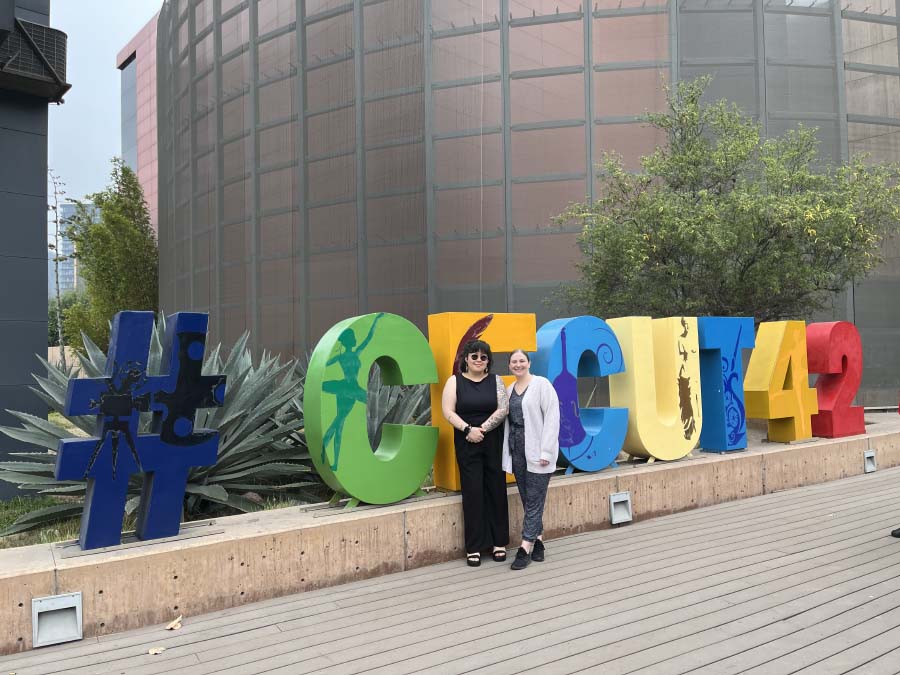 Vanessa Beltrán (left) and Lindsey Barr
Vanessa Beltrán (left) and Lindsey Barr
Arts Management lecturer Lindsey Barr, executive director of the Literary Managers and Dramaturgs of the Americas (LMDA), helped lead a cross-border conference spanning San Diego and Tijuana. Vanessa Beltrán (MA Arts Management ’25) served as the conference’s accessibility coordinator. Over the two-country gathering, dramaturgs, theatre artists, and arts managers from across the Americas came together to share ideas, stories, and creativity.
Shaping the Future of the Internet and AI: At the UN in Oslo
 Horne (second from left) presenting at the UN forum in Oslo
Horne (second from left) presenting at the UN forum in Oslo
Senior Professorial Lecturer of Literature Chelsea Horne traveled to Oslo, Norway for the United Nations Internet Governance Forum 2025. She spoke about privacy, data protection, AI policy, and digital trust and resilience. She also presented a paper at the concurrent Annual Symposium of the Global Internet Governance Academic Network (GigaNet).
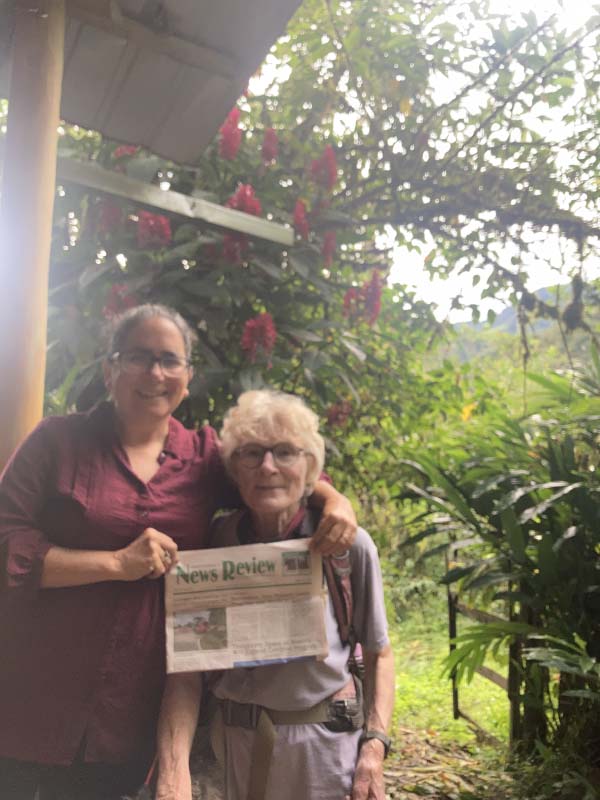
Safeguarding Watersheds, Inspiring Youth in Ecuador
Environmental Science Professor Karen Knee traveled to Ecuador and attended a workshop for groups of K-12 students working to protect their watersheds. She will assist the group with their water monitoring program. Knee studied abroad in Ecuador as an undergraduate, volunteered with a community newspaper in the Intag cloud forest, and returned as a Fulbright scholar. She often incorporates case studies from Ecuador in her classes.
Right: Karen Knee with Mary Ellen Fieweger, former editor in chief of community paper Periódico INTAG, outside her home in the Intag cloud forest.
At Ground Zero for the Atomic Age
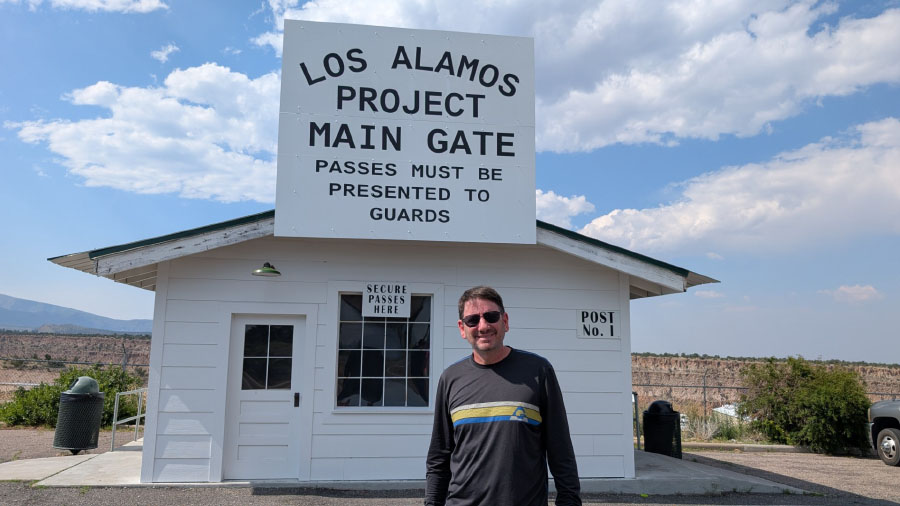 Phil Johnson at Los Alamos
Phil Johnson at Los Alamos
Physics Professor Phil Johnson visited Los Alamos National Laboratory in New Mexico, where Manhattan Project administrators built a secret laboratory in 1943 and designed and built the world’s first atomic weapons. During the Manhattan Project, Los Alamos became the home to many of the top scientific minds of the day including Dr. J. Robert Oppenheimer.
History Research Abroad in Luxembourg
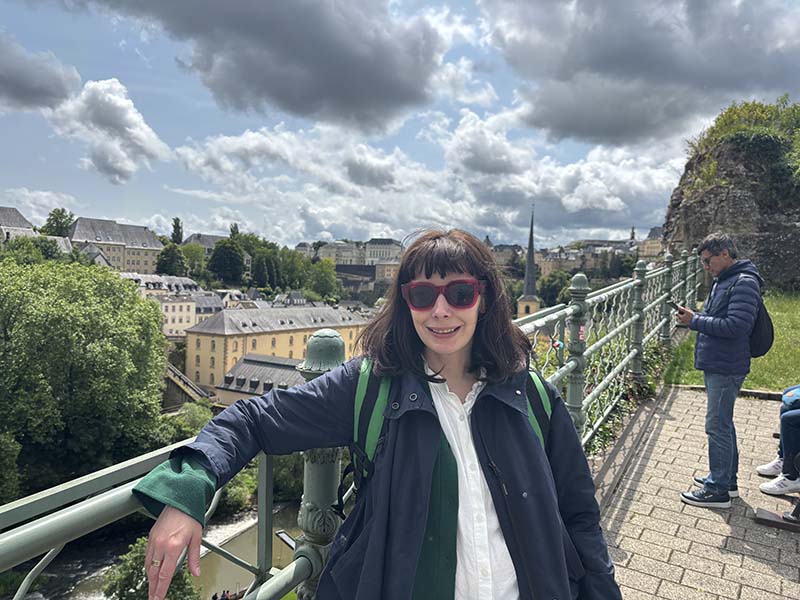 M.J. Rymsza-Pawlowska in Luxembourg
M.J. Rymsza-Pawlowska in Luxembourg
History Professor M.J. Rymsza-Pawlowska spent the summer as a visiting researcher at the Centre for Contemporary and Digital History at the University of Luxembourg, collaborating with interdisciplinary public history groups and sharing her own research-in-progress.
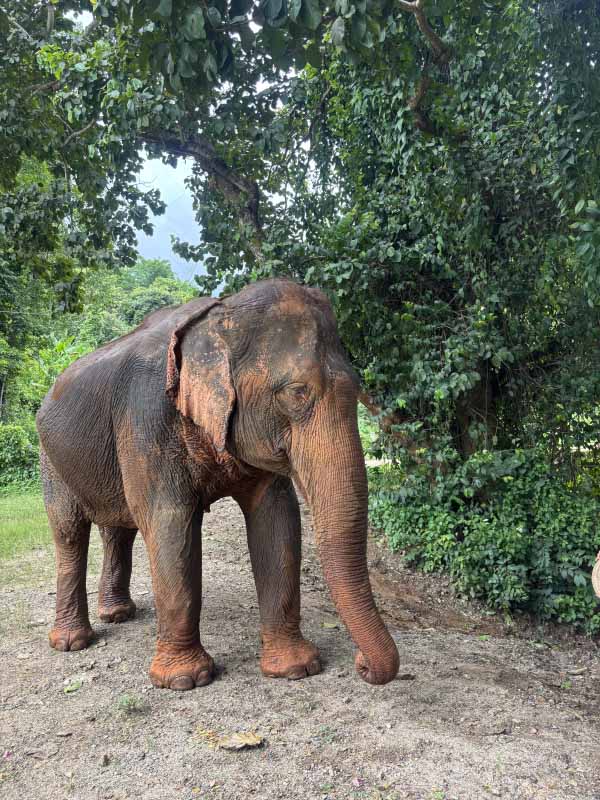
Turning Summer Camp into a Science Lab in Bangkok
Recent BS biology graduate Alexander Diggs was working with Ivy Camps USA in Bangkok, Thailand—an organization that brings the excitement of summer camp into academic enrichment, offering unique learning experiences that go beyond the traditional classroom. This semester, Alexander will begin his MS biology degree in the lab of AU’s Professor Taisuke Izumi.
Right: Elephant in Thailand
Alumna Travels to Senegal to Reframe Anthropology
 Michelle Taylor in Senegal
Michelle Taylor in Senegal
Michelle Taylor, AU Anthropology alumna and incoming History PhD candidate traveled to Senegal for an anthropology conference with the Association of Black Anthropologists, an organization founded in 1970 that seeks to ensure that people studied by anthropologists are not only objects of study but active makers and/or participants in their own history.